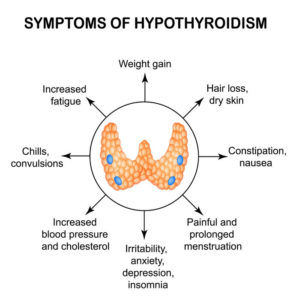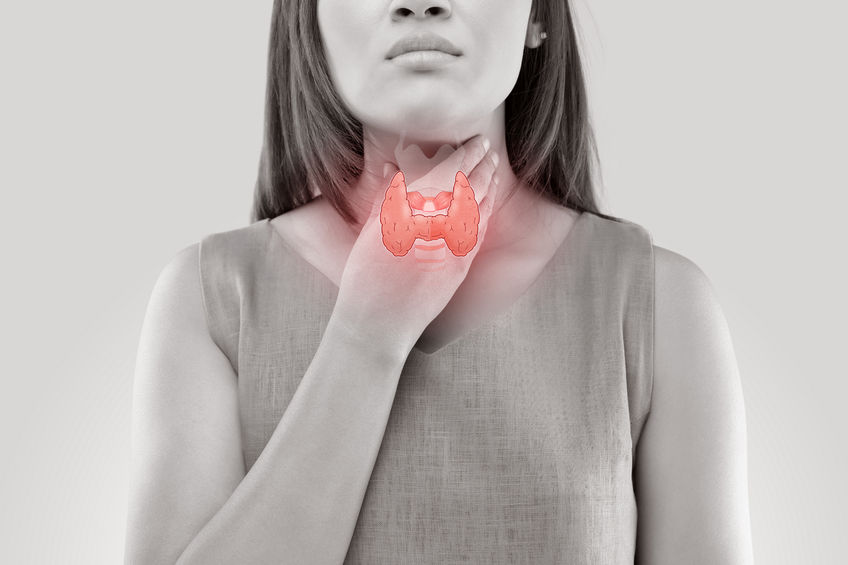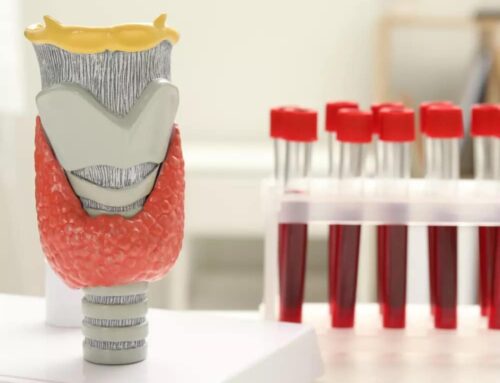The thyroid is a gland that is located on the front of the neck. It combines iodine and the amino acid tyrosine to produce  thyroid hormone. Thyroid hormone regulates the metabolism of every cell in the body. Needless to say thyroid hormone is very important to ones overall health and a deficiency can result in wide variety of problems. The pituitary gland located in the brain secretes thyroid stimulating hormone (TSH) in response to low levels of thyroid hormone. Doctors can monitor the function of thyroid gland through various blood tests. When TSH levels are found to be high on a laboratory test, a diagnosis of hypothyroidism can be made. When elevated TSH levels are used to diagnose hypothyroidism, the incidence in the US is about five percent. Some doctors feel that the blood tests alone are not sensitive enough to detect an underactive thyroid. Since thyroid hormone sets the metabolic rate, one’s resting body temperature can be used to give a doctor more information about the functioning of the thyroid. A low temperature would be associated with a low functioning thyroid.
thyroid hormone. Thyroid hormone regulates the metabolism of every cell in the body. Needless to say thyroid hormone is very important to ones overall health and a deficiency can result in wide variety of problems. The pituitary gland located in the brain secretes thyroid stimulating hormone (TSH) in response to low levels of thyroid hormone. Doctors can monitor the function of thyroid gland through various blood tests. When TSH levels are found to be high on a laboratory test, a diagnosis of hypothyroidism can be made. When elevated TSH levels are used to diagnose hypothyroidism, the incidence in the US is about five percent. Some doctors feel that the blood tests alone are not sensitive enough to detect an underactive thyroid. Since thyroid hormone sets the metabolic rate, one’s resting body temperature can be used to give a doctor more information about the functioning of the thyroid. A low temperature would be associated with a low functioning thyroid.
Hypothyroidism slows the body every living cell in the body. Symptoms of hypothyroidism include lethargy, weight gain, loss of appetite, cold intolerance, dry skin, hair loss, sleepiness, muscle and joint pain, weakness, depression, mood swings, forgetfulness, constipation, menstrual and fertility problems, decreased perspiration, nerve pain, blurred vision, decreased hearing and fullness in the throat. In addition your doctor may notice the following signs in a hypothyroid patient; low body temperature, coarse hair, dull facial expression, puffiness around the eyes, enlarged tongue, goiter (enlarged thyroid), blood pressure changes, slow heart rate, swelling around the heart, swelling of arms and legs, delayed reflexes. A severe form of hypothyroidism is “myxedema coma” which is a life threatening situation.

The treatment of an inadequately functioning thyroid may involve something as simple as adjusting the diet or lifestyle. But more often than not, hormone replacement therapy with thyroxine (T4) with or without triiodothyronine (T3) is needed. Some cases are managed in a more naturopathic way with glandular “armour” thyroid. Homeopaths often attempt to control levels with plant-source guggulipids (also known as guggal extract). But these latter approaches are fraught with challenges in trying to tightly control levels.








